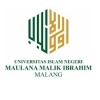The Influence of Tiktok Videos in Increasing Students’ Pronunciation Ability
Abstract
Full Text:
PDFReferences
Afidah, N., Sari, N. K., & Hanifah, H. (2021). Investigating Students’ Perspectives on the Use of Tiktok As an Instructional Media in Distance Learning During Pandemic Era. DINAMIKA : Jurnal Kajian Pendidikan Dan Keislaman, 6(2), 47–68. https://doi.org/10.32764/dinamika.v6i2.1872
Aji, W. N. (2018). Aplikasi Tik Tok Sebagai Media Pembelajaran Bahasa dan Sastra Indonesia. Universitas Widya Dharma Klaten, 431, 136.
Bernard, A. V. (2021). Expanding ESL Students’ Vocabulary Through TikTok Videos. Lensa: Kajian Kebahasaan, Kesusastraan, Dan Budaya, 11(2), 171. https://doi.org/10.26714/lensa.11.2.2021.171-184
Dalton, C., & S. (1994). Pronunciation. Oxford University Press.
Deriyanto, D., & Qorib, F. (2018). Persepsi Mahasiswa Universitas Tribhuwana Tunggadewi Malang Terhadap Penggunaan Aplikasi Tik Tok. Jisip, 7(2), 77. www.publikasi.unitri.ac.id
Dewanta, A. (2020). Pemanfaatan aplikasi Tik Tok sebagai media pembelajaran bahasa Indonesia. Jurnal Pendidikan Dan Pembelajaran Bahasa, 9(2), 79–85.
Farrah, M., & Halahlah, N. (2020). Pronunciation problems among Palestinian English major students in Hebron University. International Journal of Arabic-English Studies, 20(1), 203–226. https://doi.org/10.33806/ijaes2000.20.1.11
Firamadhina, F. I. R., & Krisnani, H. (2021). PERILAKU GENERASI Z TERHADAP PENGGUNAAN MEDIA SOSIAL TIKTOK: TikTok Sebagai Media Edukasi dan Aktivisme. Share : Social Work Journal, 10(2), 199. https://doi.org/10.24198/share.v10i2.31443
Handrianto, C., & Rahman, M. A. (2019). Project based learning: a review of literature on its outcomes and implementation issues. LET: Linguistics, Literature and English Teaching Journal, 8(2), 110–129.
Handrianto, C., Jusoh, A. J., Nengsih, Y. K., Alfurqan, A., Muslim, M., & Tannoubi, A. (2021). Effective Pedagogy in Primary Education: A Review of Current Literatures. Abjadia, 6(2), 134–143. https://doi.org/10.18860/abj.v6i2.12978
J, D. (2008). Natural Experiments And Quasi-Natural Experiments. The New Palgrave Dictionary of Economics, 856– 859. https://doi.org/10.1057/9780230226203.1162. ISBN 978-0-333-78676-5
John W. Creswell. (2008). Educational Research: Planning, Conducting, and Evaluating Quantitative and Qualitative Research (Third). New Jersey: Pearson Education.
Kusumawati.Ira.&kk. (2022). Metodologi Penelitian Keperawatan. PT Global Eksekutif Teknologi.Padang Sumatra Barat.
Muslimah, D. M. (2022). the Impact of Tik-Tok Videos To Reduce Pronunciation Errors on 9 Th Grade Students.
Novitasari, N., & Addinna, A. (2022). Students’ Perception on the Use of TikTok for Learning English. Journal of English Language Teaching, 11(4), 566–579. https://doi.org/10.24036/jelt.v11i4.119484
Nurul, A., & Mutiara, F. N. (2021). Tiktok : Supplementary Instructional Media in Speaking Skill During Pandemic Covid 19. Jurnal Bahasa Satra., 8(2), 26–31. https://jurnal.lppmstkipponorogo.ac.id/index.php/JBS/article/view/95/156
Pernantah, P. S., Kusnilawati, L., & Handrianto, C. (2022). Implementasi Pembelajaran Tatap Muka ( PTM ) Terbatas Selama Masa. Jurnal Ilmu Pendidikan, 22(1), 46–52.
Ramadhani, D., Kenedi, A. K., Helsa, Y., Handrianto, C., & Wardana, M. R. (2021). Mapping Higher Order Thinking Skills of Prospective Primary School Teachers in Facing Society 5.0. Al Ibtida: Jurnal Pendidikan Guru MI, 8(2), 178. https://doi.org/10.24235/al.ibtida.snj.v8i2.8794.
Su, D., & Lu, Y. (2021). Infer user preferences from aggregate measurements: A novel message passing algorithm for privacy attack. Performance Evaluation, 145(1), 1–2. https://doi.org/10.1016/j.peva.2020.102148
Shi, Y. U., & Chung, J.-H. (2020). A Study on the Mobile Video Contents Application . Journal of Digital Convergence, 18(3), 312–315. https://doi.org/10.14400/JDC.2020.18.3.311
Sloane, G., & Rittenhouse, L. (2019). First look at TikTok’s game plan: Leaked pitch deck reveals how the app is luring brands. Poiler Alert: There Will Be Gummy Bears. Advertising Age, 90(20), 6.
Smith, K. T. (2019). Mobile advertising to Digital Natives: preferences on content, style, personalization, and functionality. Journal of Strategic Marketing, 27(1), 67–80. https://doi.org/10.1080/0965254X.2017.1384043.
Tiara, A., Rahman, M., & Handrianto, C. (2021). The Students` Perception About Use of Duolingo Application for Improving English Vocabulary. International Journal of Education, Information Technology, and Others, 4(4), 690-701. https://doi.org/10.5281/zenodo.5775915
Yang, H. (2020). Secondary-school students’ perspectives of utilizing tiktok for English learning in and beyond the EFL classroom. 2020 3rd International Conference on EducationTechnology and Social Science (ETSS 2020), Etss, 162–183.
DOI: https://doi.org/10.18860/jeasp.v6i1.20762
Refbacks
- There are currently no refbacks.

This work is licensed under a Creative Commons Attribution-ShareAlike 4.0 International License.







Editorial Office:
Pusat Pengembangan Bahasa
Program Khusus Pengembangan Bahasa Inggris (PKPBI)
Universitas Islam Negeri Maulana Malik Ibrahim Malang
Gedung C lantai 1
Jl. Gajayana No 50 Kota Malang, Jawa Timur, Indonesia
Kode Pos 65144, Telp/Fax : (0341) 570872
Email: jeasp@uin-malang.ac.id
JEASP : Journal of English for Academic and Specific Purposes is licensed under a Creative Commons Attribution-ShareAlike 4.0 International











